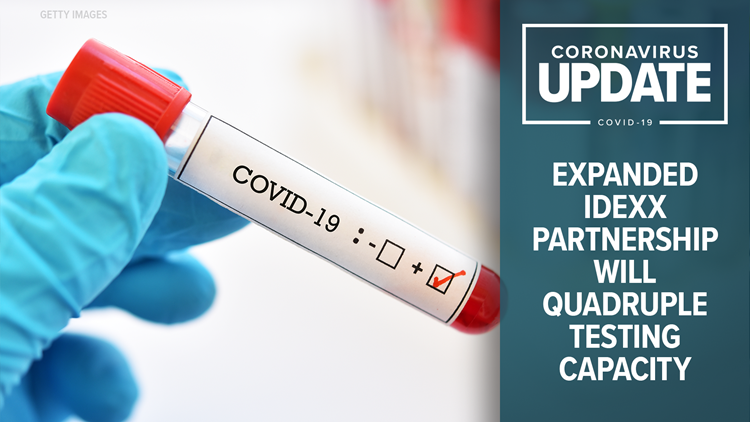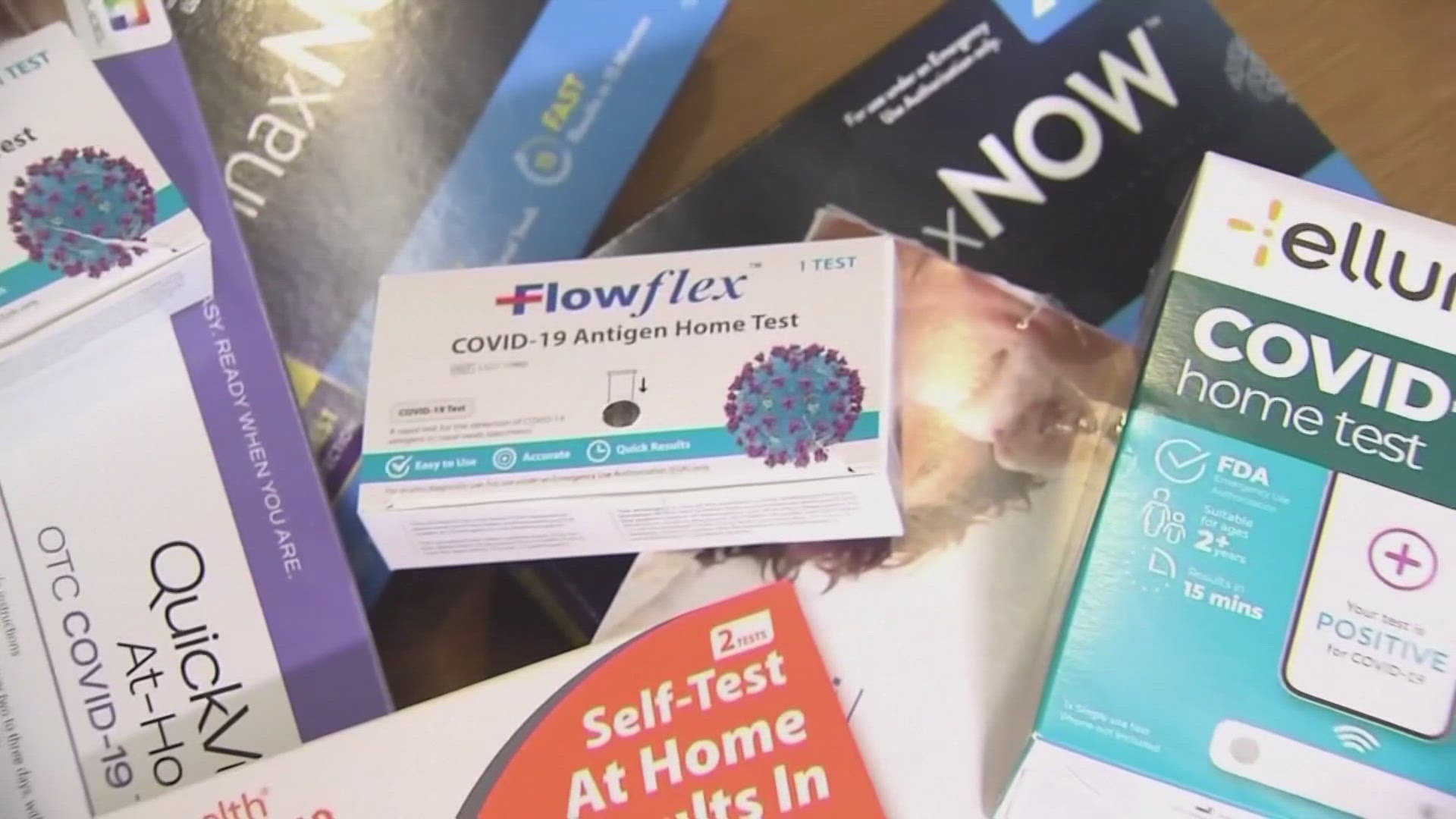AUGUSTA, Maine — The State’s partnership with IDEXX Laboratories, Inc. is being expanded, the Mills Administration announced Monday. The partnership will quadruple the testing capacity beginning in July.
Maine Department of Health and Human Services (DHHS) is developing a new mobile lab anchored at the State lab in Augusta to expand the testing capacity and will utilize the added capacity by creating “swab and send” locations across the state. DHHS says the locations will “ensure that 90 percent of residents can get tested within 30 minutes of their home.”
According to DHHS, the state will cover the full cost of specimen collection and testing at the state-contracted swab and send sites through at least August 31.
DHHS says developing testing sites throughout Maine and expanding testing capacity further will “allow more people in Maine with elevated risk of exposure to get tested for the virus.” They say this expansion is critical to protecting the health of Mainers as well as summer visitors.
“This expanded testing capacity represents another breakthrough for Maine in the fight against COVID-19,” Governor Janet Mills said in a statement. “This expansion, along with new swab and send sites, is an important step forward in allowing more people across Maine to get tested and stay healthy. On behalf of this Administration and on behalf of all the people of Maine, I thank IDEXX for their continued partnership and their commitment to our state.”
“Access to timely, accurate, and affordable COVID-19 testing is central to protecting public health in the face of this pandemic,” said DHHS Commissioner Jeanne Lambrew. “This expansion builds on Maine’s progress to date and further supports our quick intervention to prevent the spread of this highly contagious virus.”
According to DHHS, in May, the state’s public and private labs conducted nearly 37,000 tests, surpassing the minimum by 40 percent.
The new plan will expand testing capacity by:
- Creating a New Mobile Laboratory: DHHS and IDEXX are expanding their existing partnership to expand the State’s laboratory capacity through a new mobile laboratory to be stationed at the State’s Health and Environmental Testing Laboratory (HETL) in Augusta. As a result of this new capacity, starting in July, the State lab will be able to process an additional 25,000 tests a week, quadrupling current capacity. This added capacity is made possible through purchasing at least 350,000 additional test kits, bringing on IDEXX personnel, and the new mobile lab, which will serve as an extension of HETL. The initiative is supported by federal funding. DHHS expects to finalize a contract with IDEXX in the coming week.
- Creating “Swab and Send” Sites: DHHS will utilize this added capacity by developing 20 “swab and send” locations across Maine to ensure that 90 percent of residents can get tested within 30 minutes of their home. These 20 sites will complement the roughly 40 current testing sites available to the public. This week, DHHS will formally invite applications for federal grant funding to support the establishment of these specimen collection sites and testing of their samples at HETL. This greater access to safe and accessible testing will also extend to tourists, seasonal workers, and other visitors to Maine.
- Making Testing Available to More People in Maine: DHHS is issuing a standing order allowing most people in Maine with elevated risk to get a COVID-19 test without the need for a separate order from a health care provider. This means individuals can seek testing even if they don’t have a primary care provider or a written order from a clinician if they face a higher risk of exposure, with or without experiencing symptoms. This could include: health care workers and first responders, seasonal and migrant farm workers, people experiencing homelessness, visitors from other states with a higher prevalence of the virus, and employees of congregate living facilities such as nursing homes, lodging establishments, grocery stores and other businesses who have direct, daily contact with the public.
--
At NEWS CENTER Maine, we’re focusing our news coverage on the facts and not the fear around the illness. To see our full coverage, visit our coronavirus section, here: /coronavirus
NEWS CENTER Maine Coronavirus Coverage
RELATED: Performing During A Pandemic



